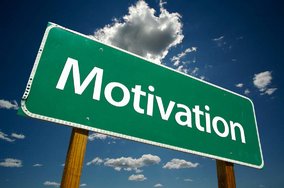 Having to do something you don’t want to do isn’t hard to imagine. We run into it almost every day.
Having to do something you don’t want to do isn’t hard to imagine. We run into it almost every day.
It usually involves change, time, attitude and choice, but not necessarily in that order. There are some things we are faced with that bring out the two-year-old in us as we tantrum and say “no” both verbally and behaviorally. The doctor says we can’t eat sweets, so we buy a big bag of Snickers. The workplace says we can’t smoke, so we hatch all sorts of devious plans to do it anyway. We need to lose weight, so we skip anything that looks healthy or involves movement. It’s all a big fat NO!
None of this changes the fact we need to do something different, new, better, life-saving and helpful for ourselves.
So, as an exercise, choose something you need to do. Now, let’s ease into how to do it. There’s no need to go whole hog and overwhelm yourself with dramatic and over-ambitious ideas right off the bat. It works best to look at other times you’ve made a successful change. Recall how you did it and remember the reward that came with your effort. Once you remember something you’ve done, you know that you truly can make wise decisions and you can continue to make them. Chances are, if something has come to mind, you did something to make it happen. The good news is that you can do it again, even better, quicker, easier.
I recommend writing your answers to these few questions:
- Did you plan for success or did it “just happen?”
- What inspires you to make change? Or Who?
- How can you keep your focus on achieving or doing something to bring about change?
- What’s a reasonable time for this to happen? For example, don’t plan to write a book in a weekend, no matter what those programs advertise.
- If you had to defer one part of your plan this week, how would you make sure you pick back up and stay on course next week?
- Do you prefer working days at a time? An hour at a time? What time of day is better for you to devote to achieving your goal?
- If you were to evaluate yourself, can you see any patterns you choose that either determine your success or determine your failure?
Your goals are unique to you and the way you choose to succeed at succeeding or succeed at failing are unique to you. These questions will help you look deeply into your patterns of behavior and pick the parts that are more likely to work for your success. You can determine what different choices you can apply this time, based on what you know about yourself, to enjoy the process and achieve a good outcome.
Tips:
- Create a plan for yourself. Write a daily plan that includes action steps. At the end of the week, you can see all the positive steps you’ve taken. If they are small steps, they are still positive. Don’t discount them. Look at your week. Were there days you reverted or wanted to revert back to “the way I’ve always done it?”
- If there were times you felt yourself slipping back into old habits or resisting change, make a list of things you can do if this happens again.
For example, if your goal is to smoke one less cigarette a day and you didn’t achieve that goal, what could you do if that feeling comes up again (which it will!). Some people find counting or watching the clock for one minute, telling themselves, “I can enjoy not smoking for one more minute.”
You can always call for personal coaching around any transition or change goals.
